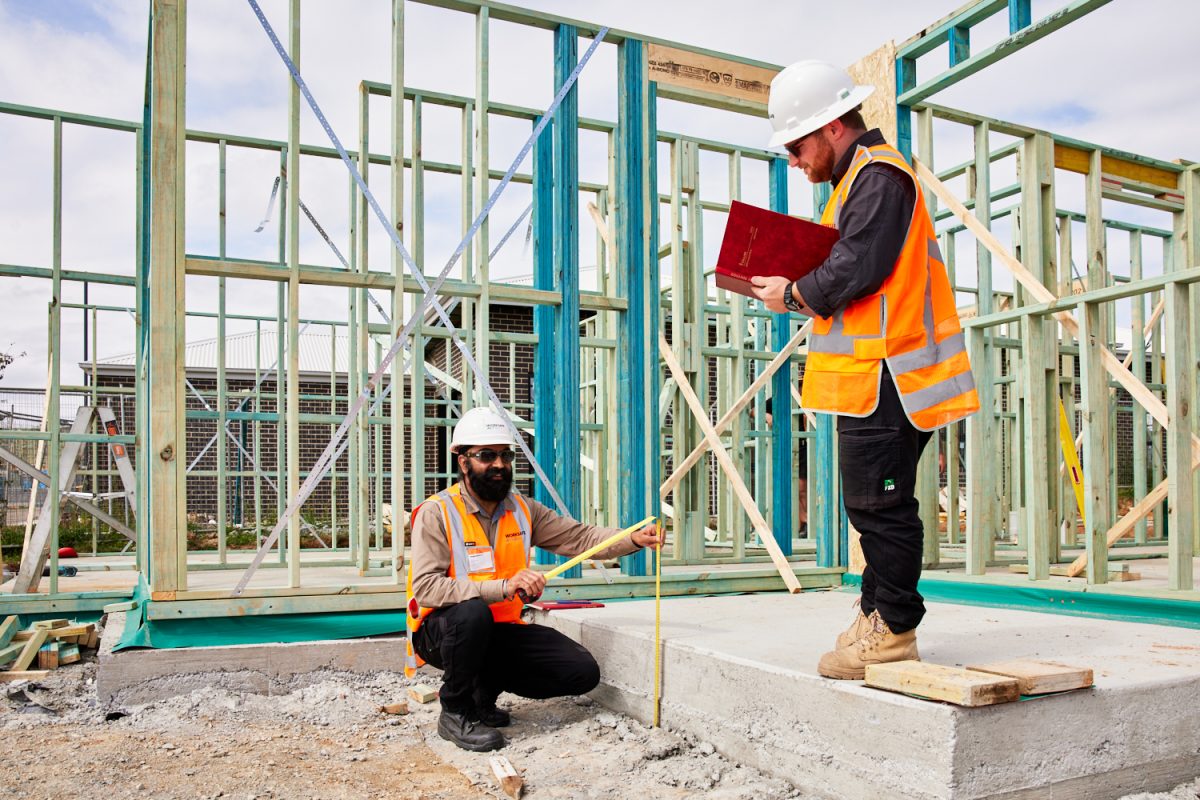
All cross-border workers, including tradies, should have a lawyer review their State of Connection if they’re injured on the job. Photo: WorkSafe ACT.
If you’re injured on the job, you’re likely to receive a significantly better payout under the ACT workers’ compensation legislation than under the NSW system.
With many Canberrans working across the border in NSW, and vice-versa, it can become confusing when it comes time to make a personal injury claim. But doing your research can pay off.
BDN Lawyers principal director, Richard Baker, said anyone working in a cross-border situation should seek legal advice if they suffer a significant injury at work requiring medical treatment and/or time off work.
He said this ensured their claim would be dealt with within the correct workers’ compensation system.
Every state and territory has its own workplace injury legislation, so workers’ entitlements can differ significantly.
For many workers, identifying the applicable workers’ compensation scheme is simple because they only work in one location. For others however, their jobs take them between locations and across borders.
Mr Baker said employees needed to be aware of the State of Connection test if they worked between NSW and the ACT.
The State of Connection legislation involves a hierarchical series of tests to determine whether a cross-border worker’s employment is connected with a particular state or territory.
Mr Baker said the test considered things such as where the employee usually worked, where they’re based and from where they received instructions, as well as their employer’s principal place of business.
In some instances, workers could be mischaracterised as being a NSW worker, causing them to miss out on the superior benefits available under the ACT workers’ compensation system if they were injured on the job.
“The ACT has a very good workers’ compensation system, however the NSW system is not so crash hot,” Mr Baker said.
“Often, people who live in Canberra and have a NSW workers’ comp claim, find it difficult to find a lawyer to take them on because the NSW system isn’t terribly generous for claimants, and doesn’t make it easy for lawyers in terms of legal fees either.
“BDN Lawyers has offices in Queanbeyan and the ACT. Most firms that operate exclusively in the ACT will not touch a NSW claim.
“Even if a client has a NSW workers’ compensation claim, if we can establish they should in fact be classified as an ACT worker, we can usually get them a better outcome, including opening up doors for common law claims to be made.”
The difference between the schemes can be sizeable. NSW only allows weekly payments to be made for a maximum period of 260 weeks – or five years – unless the worker has been assessed as having a whole person impairment of more than 20 per cent. ACT laws can permit ongoing payments.
And if a worker is injured in NSW, they can only make a common law claim for damages if they are assessed as having at least 15 per cent whole person impairment. In comparison, the ACT does not impose these restrictions.

BDN Lawyers principal director Richard Baker says anyone working in a cross-border situation should seek legal advice if they suffer a significant injury at work. Photo: Thomas Lucraft.
“If we’re dealing with matters in the ACT, you don’t have to hit the whole person threshold in order to make a common law claim. You just need to look at if the person was injured because of the actions or inactions of their employer,” Mr Baker said.
“In terms of claimant rights, the ACT system is much better.”
Successful ACT claims can include weekly benefits paid in place of lost wage, medical and travel expenses, and lump sum compensation for permanent impairment.
Mr Baker said truck or delivery drivers, couriers, tradespeople and any employees who work between NSW and the ACT or travel across the border to their place of employment should be aware of their rights when it came to workers’ compensation.
In a recent case, BDN Lawyers was successful in having a truck driver with a NSW claim reclassified as an ACT worker. It meant he was able to receive several hundred thousand dollars more than he would have if he continued to be classified as a NSW worker.
“Under the State of Connection test he was characterised as an ACT worker, which made a significant difference to him,” Mr Baker said.
“Under the NSW legislation, despite suffering a very serious injury to his hand, he never would have satisfied the whole person impairment threshold required to claim common law damages.
“If people get injured at work, they need to talk to a lawyer to find out more about their workers’ compensation entitlements. A lawyer can also assist in ensuring an injured worker is paid at the correct rate and is properly reimbursed for medical treatment.”















